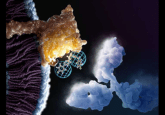Portable smartphone test may be able to identify cancer biomarker

Researchers from Washington State University (Pullman, WA, USA) have developed a multichannel smartphone spectrometer that has demonstrated optical biosensor capabilities to simultaneously analyze several samples to laboratory standard. The device could be used to identify cancer biomarkers.
The study, recently published in Biosensors and Bioelectronics, utilized a novel method to achieve the multichannel optical spectral sensing with nanometer resolution on a smartphone. The device may be utilized in high-throughput point-of-care diagnostics due to its portability, low-cost and data transmission function.
Cancer screenings are commonly a long and laborious process used to distinguish signs of cancer before metastasis to improve the effectiveness of treatment. As time can be critical during screenings, clinicians are attempting to employ biodetection technologies to provide instant diagnoses in both the field and clinic.
The team from Washington State University developed an eight-channel smartphone spectrometer that has the capacity to detect human interleukin-6, which previous research has demonstrated is a known biomarker for lung, prostate, liver, breast and epithelial cancers.
Existing smartphone spectrometers are only able to monitor or measure one sample at a time, making them inefficient for real world applications. The novel multichannel spectrometer utilizes colorimetric enzyme-linked immunosorbent assays to measure up to eight samples simultaneously.
Although the team has only investigated the device with standard lab-controlled samples, it has demonstrated 99% accuracy. Therefore, further research is required to apply the portable spectrometer in real world situations.
Currently the design is optimized to function on iPhone 5, however, lead author Lei Li (Washington State University) is developing an adjustable multiplatform design that will be compatible with any smartphone.
“With our eight channel spectrometer, we can put eight different samples to do the same test, or one sample in eight different wells to do eight different tests. This increases our device’s efficiency,” commented Li, who has filed a provisional patent for the work.
“The spectrometer would be especially useful in clinics and hospitals that have a large number of samples without on-site labs, or for doctors who practice abroad or in remote areas,” Lei elaborated. “They can’t carry a whole lab with them. They need a portable and efficient device.”
SOURCES: Wang L, Chang Y, Sun R, Li L. A multichannel smartphone optical biosensor for high-throughput point-of-care diagnostics. Biosens. Bioelectron doi: 10.1016/j.bios.2016.09.021 (2016) (Epub ahead of print); https://news.wsu.edu/2016/10/18/wsu-portable-smartphone-laboratory-detects-cancer/





